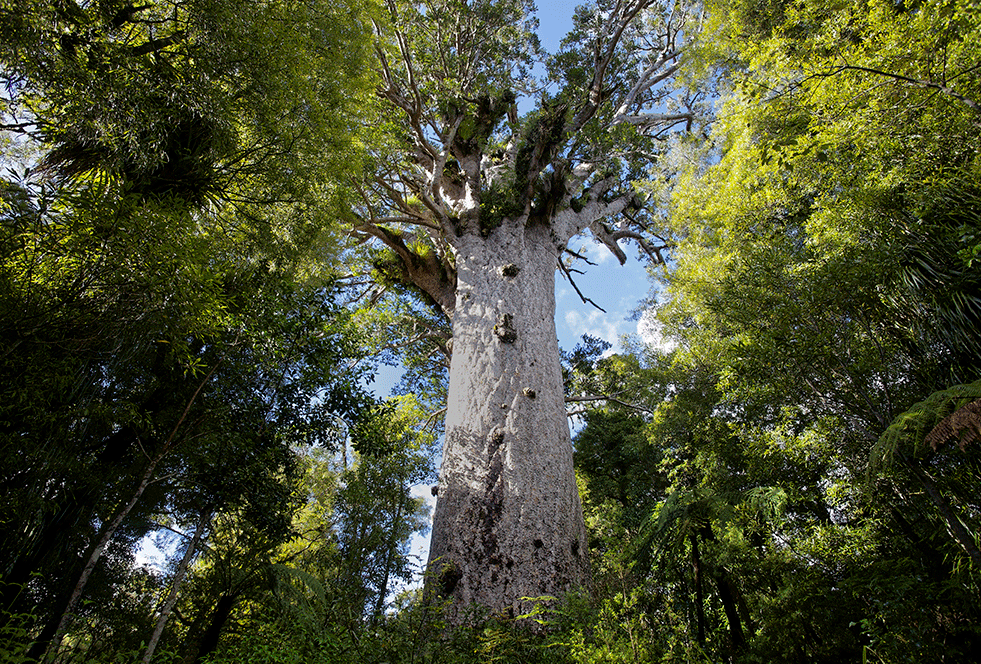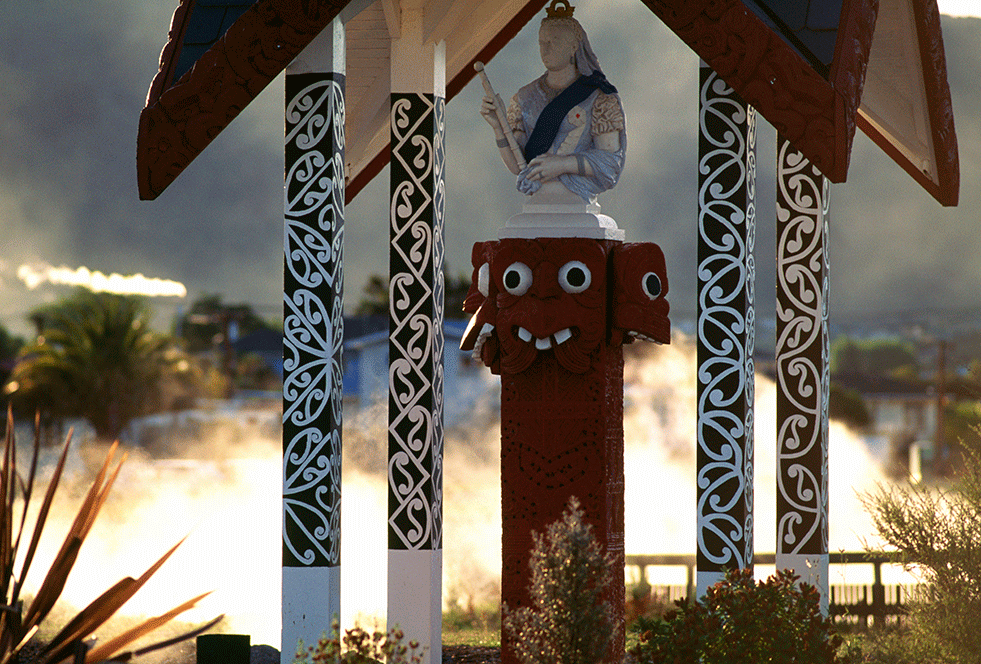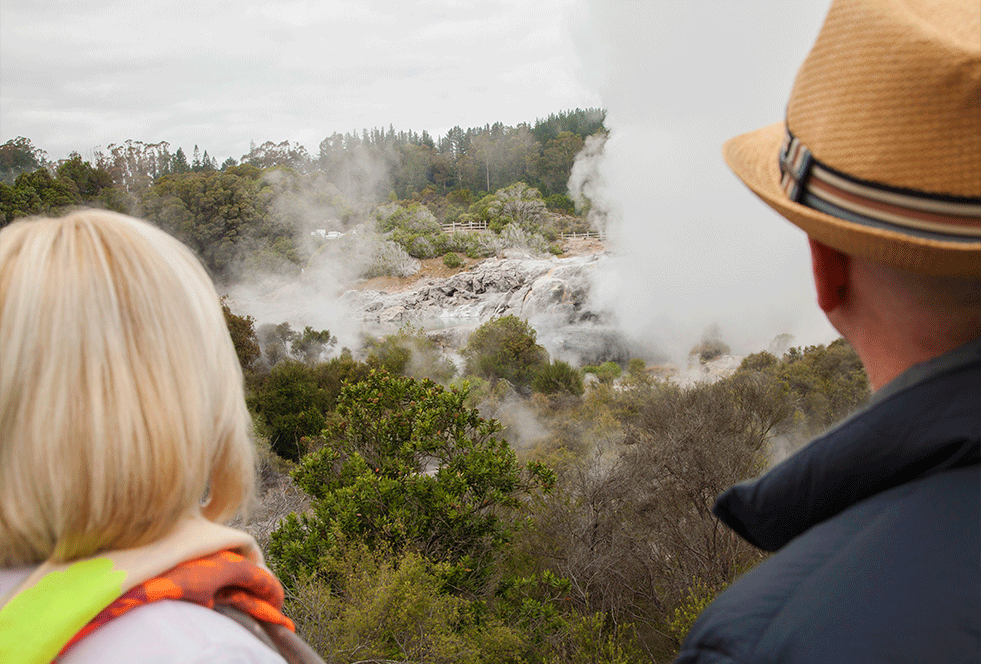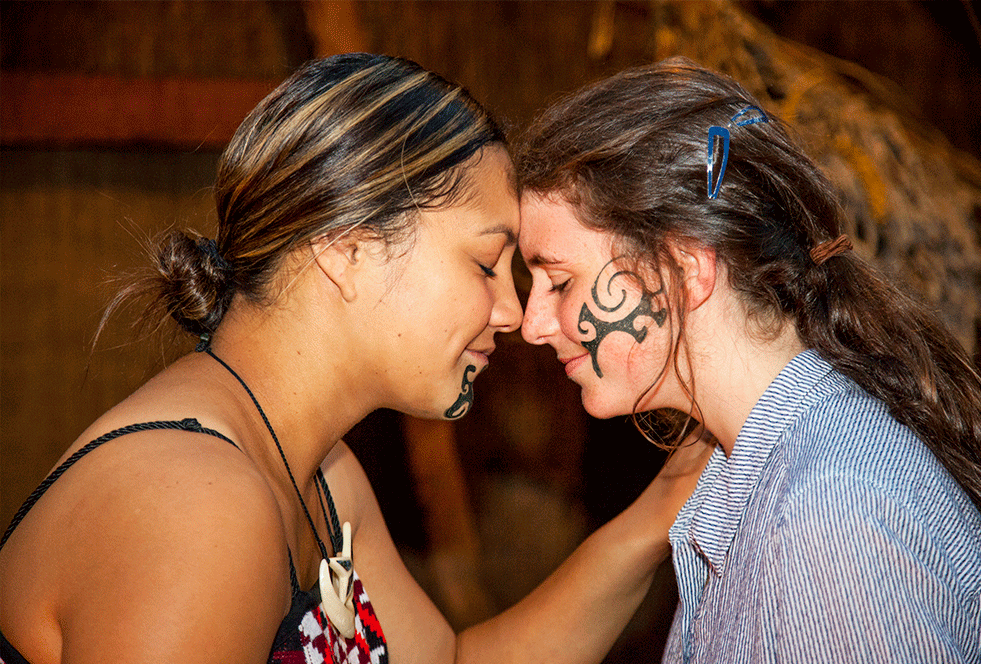Recently updated on August 1st, 2023 at 03:15 pm
Kia Ora! This is the friendly Māori greeting that awaits you at every location you visit in New Zealand. From the arts and carvings found in the big cities, to the mythical legends that are told about Aotearoa‘s (“The Land of the Long White Cloud”) founding, New Zealand’s Māori culture is integral to what makes the country so special.
New Zealanders celebrate their Māori heritage and culture in many ways, not least by the famous Haka performances at sporting events, but also in day to day life. At present, around 14% of New Zealand’s population are Māori, but there are many ways across the country that visitors can observe and experience New Zealand’s unique indigenous culture.
Feel the Māori spirituality in Northland and the Bay of Islands
The Māori people first arrived in New Zealand via the tropical Northland, which is known as the spiritual birthplace of the New Zealand Māori people. Māori heritage and legends are found all over the scenic landscapes of the Bay of Islands and its surrounding areas.


Walk beneath the giant Kauri trees in Waipoua forest, as you hear about Māori legends from a local Māori guide. Feel the positive energy emitting from Tane Mahuta, the largest surviving Kauri tree in existence, with over 2,000 years of age.
Learn about New Zealand’s founding at the Waitangi Treaty Grounds


As one of the most pivotal moments in New Zealand’s history, the location of the Waitangi Treaty signing is a fascinating place to learn more about how the Māori and the British came to an agreement that founded the nation as we know it today. Learn about the historic events that shaped New Zealand’s heritage, and enjoy a Māori cultural performance set against the scenic backdrop of the Bay of Islands.
Enjoy an after-hours dinner at Te Papa Museum of New Zealand


Delve into New Zealand’s history at the Museum of New Zealand, Te Papa, Wellington’s magnificent waterfront. Get an in-depth understanding of the country’s history with a private tour from one of the Museum’s guides; view artefacts, art and treasures, with the opportunity to ask questions about Māori heritage and New Zealand’s inception. For a truly unique experience, Trafalgar guests are invited to an after-hours dinner and drinks to toast the experience, the perfect view of New Zealand’s cultural heritage at this iconic spot.
Make a Difference in Te Puia


Rotorua is well-known for its natural hot springs, geothermal mud baths and the lingering smell of sulphur that emits throughout the city. The Māori people revered the natural wonders of Rotorua, so many people settled in the area. Today, the Māori traditions take centre stage in Rotorua, with many people visiting to get an insight into New Zealand’s indigenous culture.
To play a part in preserving the unique traditions of the Māori people in Rotorua, visit Te Puia; learn about the indigenous culture, hear stories of the native tribes and discover the physical and spiritual importance of Whakearewarewa Thermal Reserve. By visiting with Trafalgar, visitors can help to preserve unique Māori traditions and landscapes, and fund education for Māori children.
Visit the Tamaki Family Marae in Rotorua


The Tamaki Family Marae is a Māori village in Rotorua, that demonstrates the cultural traditions of the Māori people with workshops and performances. Be welcomed to the land by a powerful Haka challenge and a spine-tingling Karaanga and spend time in the village with Māori people demonstrating the customs of Māori life.
After a concert showcasing traditional Māori culture, Trafalgar guests are invited to the Tamaki private Whare (Dining Room) for a traditional Hangi feast. Joined by the family hosts, enjoy eating your meal, cooked the traditional Māori way, in the ground. After dinner, take part in the Poi Dance, or relax by the bonfires as you share stories with the hosts.
Share your favourite part of New Zealand’s Māori heritage with us below. If you feel inspired by the legendary Māori culture and want to experience it for yourself, start planning your New Zealand trip today.